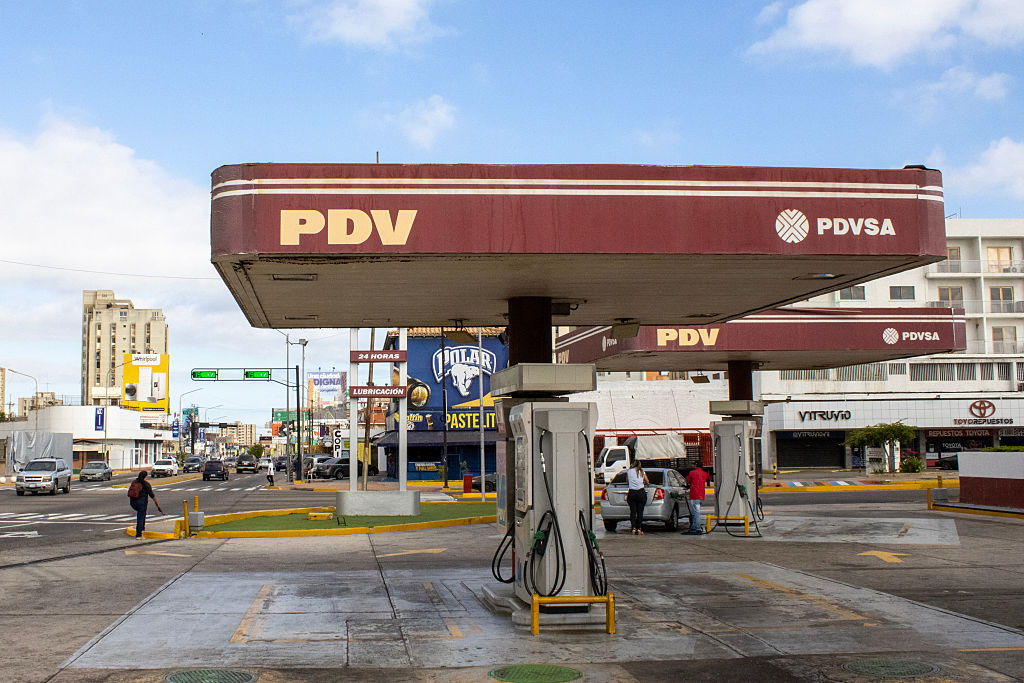Submission for the Record on North American Offshore Drilling
Submission for the Record on North American Offshore Drilling
In a statement submitted to the Committee on Natural Resources, the Council of the Americas urged cooperation with Cuba on offshore drilling, citing examples of similar cooperation with Canada and Mexico. The Council pointed to environmental concerns as a need to coordinate safety efforts, and cautioned that "the United States must do everything within reason to protect its people and its environment."
OVERSIGHT HEARING BEFORE THE SUBCOMMITTEE ON ENERGY AND MINERAL RESOURCES, COMMITTEE ON NATURAL RESOURCES
U.S. HOUSE OF REPRESENTATIVES NOVEMBER 2, 2011
The Council of the Americas (“Council”) appreciates the opportunity to provide a statement for the record concerning North American offshore energy, particularly deepwater drilling in the Gulf of Mexico. The Council is a business organization representing some 190 member companies invested in and doing business throughout the Western Hemisphere. Since our founding in 1965, the Council has been dedicated to the promotion of open markets, social and economic development, democracy, and the rule of law, and we are widely recognized for our policy and commercial leadership throughout the Americas.
The Council is deeply engaged in hemispheric energy issues as well as U.S.-Cuban relations through member working groups. The Energy Action Group brings together the public and private sectors to develop strategic energy policies for the Americas. The Energy Action Group hosts forums in cities across the Americas and publishes working papers and recommendations on key energy topics. The Cuba Working Group includes corporate leaders from the worlds of banking, financial services, energy, telecommunications, hospitality, pharmaceuticals, and law. This effort has produced a series of papers on regulations and laws affecting U.S. business activity under the U.S. embargo and in Cuba.
Background
Spanish oil company Repsol is preparing to drill in the deep waters of the Cuban portion of the Gulf of Mexico. While much attention has been focused on Repsol and the arrival of its Chinese-constructed rig, the Scarabeo 9, in Cuban waters at the end of 2011, more than a handful of other oil companies are also engaged in exploratory activities off the Cuban, Jamaican, and Bahamian coasts. Mexico, as well, has its sights set on extracting deepwater oil in its stretch of the Gulf.
The Deepwater Horizon blowout in the U.S. Gulf of Mexico in 2010 was a terrible tragedy but also a wake-up call for companies and countries about the risks inherent in deepwater drilling and the need for a well-coordinated emergency response plan, with public and private actors ready to deploy at a moment’s notice.
The Council Applauds Private Sector Action and US-Mexico and US-Canada Cooperation
Since the Deepwater Horizon explosion, the U.S. government has overhauled its offshore oil and gas regulations. In February 2011, several oil companies launched a quick-response system in case of another spill in the U.S. Gulf. At the international level, the United States is working with Mexico to develop shared safety and environmental standards for the Gulf. Outside of the Gulf, the United States and Canada are collaborating bilaterally and as part of the Arctic Council (members also include Denmark, Finland, Iceland, Norway, Russia, and Sweden) on oil spill prevention and response in the Arctic.
While U.S.-Cuban communication on Gulf drilling issues has thus far been limited to updates on the Deepwater Horizon spill, U.S.-Repsol engagement has been more active. Repsol has pledged to comply with U.S. regulatory requirements and industry standards in the Cuban area of the Gulf of Mexico and has shared its drilling and oil spill response plans with the United States as well as promised to allow U.S. agencies to inspect the Scarabeo 9.
Safety First
Repsol’s transparency is to be commended, but it is no substitution for direct U.S.-Cuban interaction on Gulf safety issues at the technical level. An oil spill in the Cuban Gulf puts at risk the waters and coast of the Eastern half of the United States from Florida to as far north as North Carolina. Such a spill would require more than a good working relationship between Repsol and the U.S. government. Complete cooperation and open communication between the U.S. and Cuban governments is essential for effective response management.
For its part, the United States has issued licenses that exempt U.S. companies from the embargo and allow them to assist in the case of a possible spill off the coast of Cuba. In addition to the licensing, the United States has facilitated contact between some U.S. companies and NGOs and Cuban officials on drilling safety and environmental topics.
These measures are constructive, but the Council is concerned that the licensing application process is too complicated and that too few companies have applied for or received licenses. Communication between U.S. companies and NGOs and Cuban officials is extremely important but no substitute for direct government-to-government contact. The Council urges the United States to grant relevant oil and oil service companies an embargo waiver that would allow them to provide equipment and share safety and prevention best practices now in order to avoid the need to provide emergency assistance in response to a spill in Cuban waters later. The Council further urges the United States to enter into direct discussions with Cuba at a technical level, as well as with Jamaica and the Bahamas, to ensure that safety and environmental standards for drilling in shared waters are at the highest level, and that communication and cooperation procedures are in place in case of a spill.
Bottom Line: The United States Must Do Everything Possible to Protect Its Waters and Coasts
Legitimate concerns about strengthening the Cuban regime in ways that allow it to continue its level of political repression cannot be overlooked but should nonetheless be considered as part of a larger picture. With only 90 miles between the tip of Florida and the north coast of Cuba, our aquatic ecosystems are inextricably linked. What damages marine life and fouls beaches in Cuban waters, if not promptly contained, will damage marine life and foul beaches in U.S. waters as well. To the extent drilling occurs off Cuba’s coast, the United States must do everything within reason to protect its people and its environment. We can do this by working with Cuba (as well as Jamaica and the Bahamas) at a technical level to ensure drilling safety, prevention, sound practices, and, in the unfortunate event of an oil spill, quickly mobilize all necessary resources to contain it.








